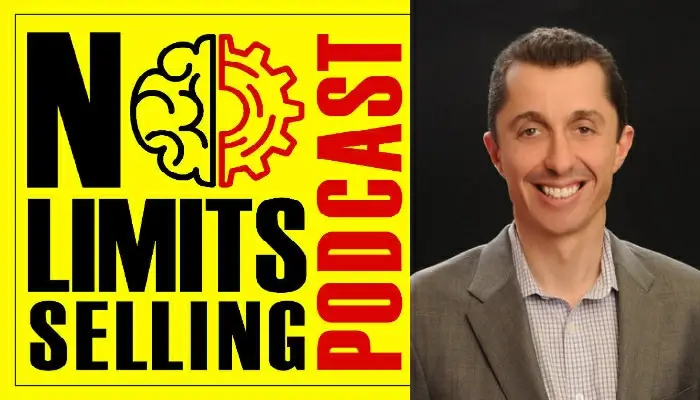How To Make Successful Team Leaders by Vlad Katz
YOU ARE NOT HERE TO MAKE A DIFFERENCE... YOU ARE HERE TO MAXIMIZE IT!
So how do you do that? How do you maximize the difference you want to make on this ball of fire we call Earth? Well... I don't have "the answer", but I do have an answer: you achieve Time Freedom and help others walk the same path. In this episode, Vlad tells us how to make successful team leaders.
Vlad Kats, a renowned real estate entrepreneur, emphasizes the importance of achieving Time Freedom - the ability to do what you want when you want. He believes this state allows individuals to align their actions with their passions. The key to this, he suggests, is transitioning from the left to the right side of the Cashflow Quadrant, a concept that represents financial and time freedom.
Kats' professional journey, from being the CEO of the Five Doors Network to a Team Leader at Keller Williams Legacy, reflects his philosophy. His leadership led to significant growth and profitability in these organizations. Before his real estate career, Kats was an Economist, a small business owner, and an adjunct professor of Management, holding degrees from St. Mary’s College of Maryland and the University of Maryland in College Park.

Contact Vlad:
[EDITOR’S NOTE: This podcast is sponsored by No Limits Selling. It is a fun, fast-paced podcast that delivers hard-fought business advice that you can implement today to improve your sales and performance]
Interested In Our Real Estate Coaching Services? Explore Our Website: Link
Feeling Not Well Today? You Can Use Our Mindset Boosters App To amp Up Your Mood: Link
Find us on Social Media:
LinkedIn | Facebook community | Instagram
Like what do you listen to? Subscribe to our podcast!
Ready to become fearless? We can help you become fearless in 60 days so you accomplish more in your career Schedule A 15 min Call with Umar
Summary
Introduction
In an insightful podcast episode from No Limits Selling, Vlad Kats, a seasoned real estate professional, shares his wisdom on how to make successful team leaders, personal growth, and the real estate industry. The conversation is a deep dive into Kats' philosophy of life and business, revealing his unique approach to success.
The Essence of Leadership
Kats begin by discussing the essence of leadership. He emphasizes the importance of leading by example and fostering a culture of trust within a team to make successful team leaders. He believes that a leader's role is to inspire and motivate, to bring out the best in everyone. He underscores the significance of creating a safe environment where team members feel valued and are encouraged to express their ideas freely.
Personal Growth and Success
The conversation then shifts to personal growth and success. Kats shares his belief that making successful team leaders is not a destination but a journey. He stresses the importance of continuous learning and improvement. He also highlights the role of failure in growth, viewing setbacks not as obstacles but as opportunities to learn and improve.
The Real Estate Landscape
As a seasoned professional in the real estate industry, Kats provides valuable insights into the field. He discusses the challenges and opportunities in the industry, and how technology is reshaping the landscape. He also shares his strategies for staying ahead in the competitive market, emphasizing the importance of customer service and building strong relationships.
Conclusion
In this enlightening conversation, Vlad Kats offers a wealth of knowledge on leadership, personal growth, and the real estate industry. His insights serve as a guide for those seeking to unleash their potential and achieve success. The podcast episode is a testament to Kats' wisdom and experience, offering valuable lessons for both personal and professional growth.
This summary encapsulates the essence of the podcast, providing readers with a comprehensive understanding of the conversation. Vlad Kats shares how to make successful team leaders, including personal growth, and the real estate industry are not just informative but also inspiring, making this podcast a must-listen for anyone seeking to enhance their personal and professional lives.
Questions & Answers
Who is Vlad Kats?
What is the main focus of this podcast episode?
What does Vlad Kats believe is the essence of leadership?
What is Vlad Kats' view on personal growth and success?
What insights does Vlad Kats provide about the real estate industry?
Where can I listen to the full podcast episode?
What can listeners gain from this podcast episode?
Don’t miss this opportunity to transform your real estate career with one-on-one coaching. As an experienced real estate coach, I, Umar Hameed, am dedicated to helping you unlock your full potential and achieve your real estate goals. To learn more about who am I and my clients ↓
If you’re ready to take the next step, book an appointment with me today and begin your journey toward success in the real estate industry.
